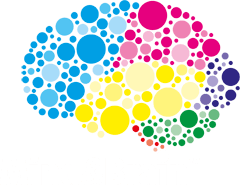Scientific and social significance
If we try to analyze and define the scientific significance of the Pula Neuropsychiatric Symposia, growing soon after their start to an important, internationally renowned and acknowledged scientific meetings, their main characteristic is in dealing with the changing position and problems connected with neurology and psychiatry. The two disciplines have become extremely important for medicine actually in the last decades, in view of fast advances in basic neurosciences and rapid progress of medical technology, especially in such delicate matters as the investigation of the nervous system and the human brain, the organ of human mind. Neurology and psychiatry have developed during the second half of the 20th century as independent scientific and practical medical disciplines, with a big number of subspecialties and their particular methodologies and technologies. This enabled revolutionary changes in the concept of many neurological diseases and disorders, with new possibilities in diagnostics, management and prevention. The same is valid for psychiatry, taking into account the new therapeutic possibilities in psychopharmacology. In line with these changes the main themes of the Symposia and didactic programs in neurology and psychiatry were organized on high scientific level with eminent experts in the field, covering advances in these areas.
Another characteristic of Pula Symposia is the understanding of the need of collaboration of neurology and psychiatry, in spite that they have become independent medical disciplines. And just this collaboration on high scientific and professional level was one of the specific qualities of these traditional Symposia. Moreover, at the same time, many other disciplines and professions had to be included in such concept of practical medical work and in the exchange of new research. Exactly this kind of interdisciplinary approach has been constantly present during all the years of the existence of our Symposia. This was the main reason for numerous eminent experts from all parts of Europe and the USA to attend the Symposia. Besides, topics were chosen so carefully that they frequently required the participation of experts from other disciplines: internists, pediatricians, ophthalmologists, otorhinolaryngologists, scientists of the basic medical disciplines: virologists, immunologists, geneticists, biochemists, pharmacologists, and even non-medical scientists: teachers, anthropologists, lawyers, sociologists etc.
For better illustration of this interdisciplinary approach and to present the deeply inherent humanistic values of the "School of Pula", we must mention at least some of the themes from the long history of the meetings: somatically caused psychoses and neuroses, psychiatry and arts, neurological and psychiatric consequences of brain injury, rehabilitation in neurology and psychiatry, psychopathological and legal problems in neurology and psychiatry, epilepsies, cerebrovascular diseases, clinical value and problems of modern technical medicine, neuroepidemiology, multiple sclerosis, AIDS, vertigo, headaches, genetic problems, brain aging, neuro- and psychogeriatrics, dementias, bioethics, modern trends in the diagnostics and therapy in neurology and psychiatry, bladder, bowel and sexual dysfunctions, neurological and psychiatric aspects of movement disorders, etc. There was actually no topic or domain in which numerous problems were not discussed from the standpoints of both disciplines.
In 2012 the Croatian Academy of Sciences and Arts - Department of Medical Sciences stressed out the importance of the Congress and became a suorganizer of the INPC.
We look forward to welcoming you to Pula in-person event! The Administrative Secretariat is pleased to assist you with further details.
Opći uvjeti poslovanja

